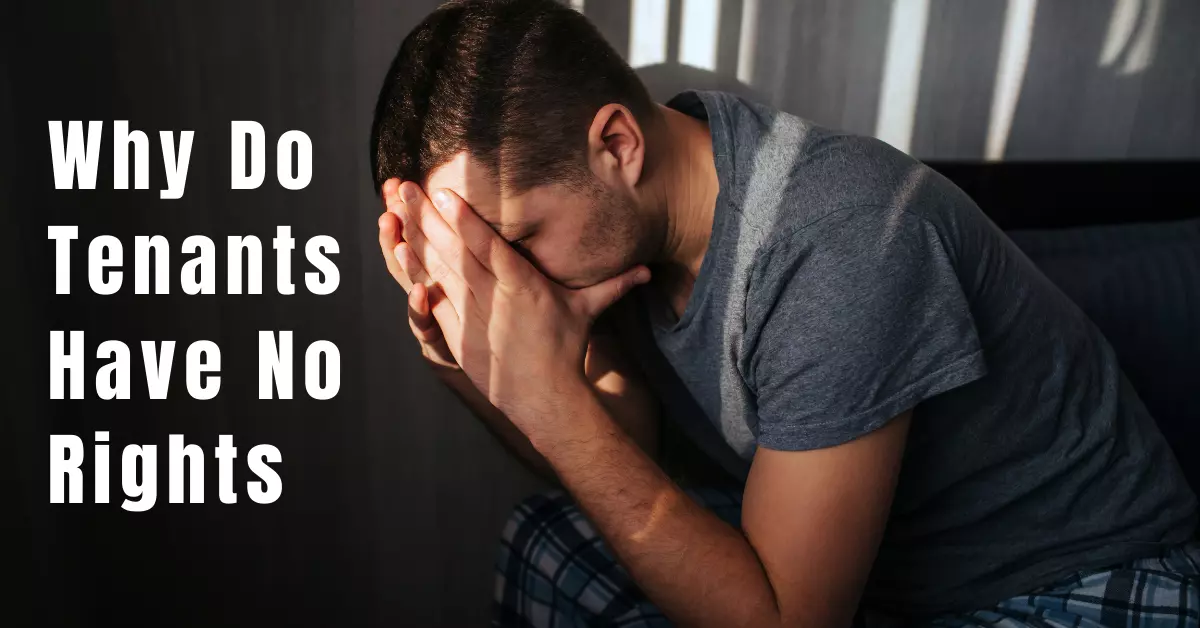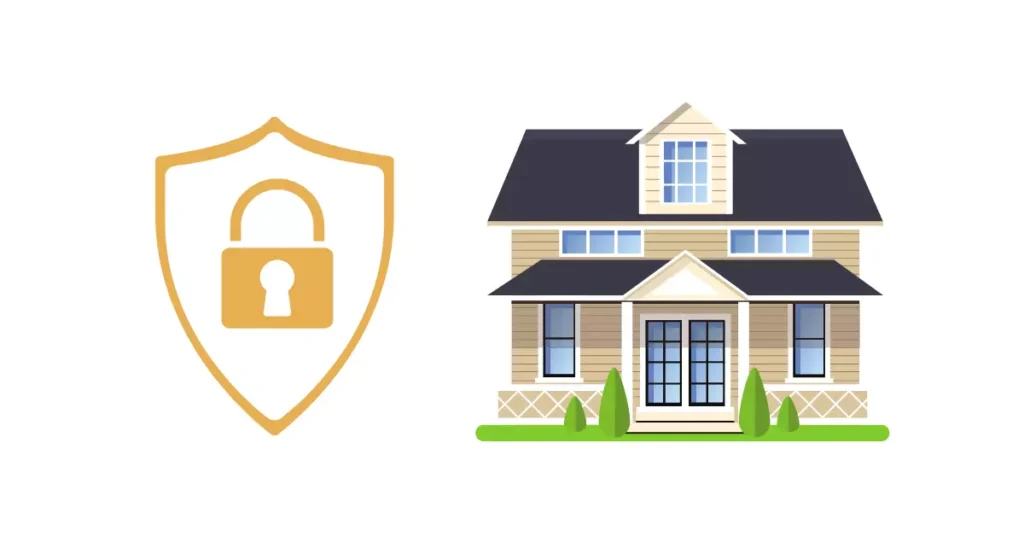Tenants do have rights, but they are limited compared to those of property owners. This is because tenants are bound by the terms of their lease agreement and do not have ownership or legal title to the property.
Some common limitations on tenant rights include restrictions on pets, subletting, and smoking within the property. Landlords have the right to evict tenants who do not abide by their lease agreement or fail to pay rent on time.
However, tenants are still entitled to a safe and habitable living space under the law.

The Current Landscape Of Tenant Rights In The United States
Historical Context: How Tenant Laws Developed And Evolved
Throughout the history of the united states, tenants have not always had the same level of protection and legal rights as property owners. In the early 20th century, tenant laws were virtually non-existent, and landlords held all the power.
However, over the years, both state and federal governments have stepped in with various regulations and laws to protect tenants’ rights.
- The first tenant rights laws emerged in new york in the 1920s and ’30s, in response to landlords’ exploitative practices.
- The passage of the national housing act in 1937 provided funding for the construction of affordable housing and led to the formation of the united states housing authority.
- In 1968, the federal fair housing act banned discrimination based on race, color, religion, and national origin.
- The decade of the 1970s saw significant tenant activism and the formation of tenant organizations nationwide.
- The 1980s and ’90s brought the rise of the affordable housing crisis, leading to new policy initiatives and legal protections for tenants.
The Current State Of Tenant Rights: National And State-Level Policies
As of 2021, there is no federal law that provides comprehensive protection for renters throughout the united states. Instead, tenant rights vary widely from state to state.
Many states have passed laws to protect tenants from discrimination, retaliation, and unsafe living conditions, but these laws are not universally enforced.
- Rent control policies, which limit the amount landlords can increase rent each year, are in place in some cities, including new york and san francisco.
- Some states have implemented “just cause” eviction laws, which mandate that landlords can only evict tenants for specific reasons, such as nonpayment of rent or violation of lease terms.
- The covid-19 pandemic led to temporary eviction moratoriums in many states, protecting tenants who were struggling to pay rent due to pandemic-related financial difficulties.

Legal Loopholes And Gray Areas That Limit Tenant Protections
Despite the progress made in recent decades, there are still significant gaps in tenant rights protections at both the national and state levels.
These loopholes and gray areas can leave tenants vulnerable to eviction, discrimination, and poor living conditions.
- Landlords in some states can evict tenants without providing justification, leaving tenants with few options for recourse.
- Some states do not require landlords to disclose information about past lead paint hazards or bedbug infestations.
- In many states, landlords can raise rent without limit once a lease has expired, leaving tenants vulnerable to sudden and dramatic rent increases.
Factors That Contribute To Limited Tenant Rights
Rental housing is an essential need for millions of people worldwide, a need so profound that it creates a housing market that often sidelines the rights of tenants.
The vulnerabilities that tenants face in this market due to economic and social factors have led to limited tenant rights and a lack of tenant protections.

How do Rising Rent Prices And Housing Shortages Affect Tenant Rights?
The affordability crisis is a significant factor in the limited tenant rights as some tenants have limited options, and high rental prices force many tenants to allocate a significant portion of their income to rent.
The lack of affordable rental housing gives landlords leverage to choose higher-paying renters over low-income counterparts.
The affordability crisis hinders tenants from advocating for their rights, resulting in fewer tenant-friendly policies.
Rising rental prices
Rental prices have surged in recent years due to the shortage of affordable housing options, high demand, and soaring house prices.
This means that tenants must spend a significant chunk of their income to secure suitable housing.
Housing shortages
There is a shortage of affordable rental housing in many countries, giving landlords more power in dictating rental prices, and tenants few options to bargain for better terms.
How Social And Structural Factors Affect Housing Security
Discrimination and marginalization of tenants in terms of social and structural factors are significant contributors to the limited tenant rights and a lack of tenant protections.
Tenant discrimination is particularly rampant in societies with crippling prejudices about race, religion, sexuality, age, and disability, among others.

Marginalized groups
The deep-seated biases of society can be explicitly reflected in the rental housing market, with marginalized groups.
For example, immigrants, lgbtq+ people, people of color, and individuals with disabilities encounter high levels of prejudice in their search for housing.
Social stratification
Rental prices are often correlated with social stratification. This means that due to economic factors, individuals from low-income backgrounds with less education.
Job training also tends to face numerous barriers to securing affordable housing, further marginalizing these individuals.
How Power Dynamics And Lobbyists Shape Tenant Protections
The politics of housing is another crucial factor in limited tenant rights.
The reason is that power dynamics play a role in determining tenant protections and the level of support tenants receive from governments and governing bodies.
Lobbyists
Real estate and landlord lobbyists can use their position of influence to institute laws and regulations that favor landowners over tenants. It can result in a system that is mostly tenant-unfriendly.
Power dynamics
The relationship between landlords, tenants, and governing bodies is unbalanced, with significant power held by landlords, institutions, and their lobbyists over tenants and tenant rights.
This leaves tenants vulnerable to limited tenant rights and protections in instances where landlords or institutions act fraudulently.
Frequently Asked Questions For Why Do Tenants Have No Rights
What Are The Rights Of Tenants In A Rental Property?
Tenants have the right to a habitable dwelling, privacy, and protection against discrimination. They can also expect their security deposit to be returned.
Can A Landlord Enter A Rental Property Without Permission?
A landlord may enter a rental property without permission only for emergencies or to make necessary repairs. Otherwise, they must provide notice and obtain permission.
What Can Tenants Do If Their Rights Are Violated?
Tenants can take legal action and file a complaint with their state’s housing authority. They may also consider consulting with a lawyer.
Can A Landlord Evict A Tenant Without A Reason?
Depending on the state, a landlord may be able to evict a tenant without a reason if they provide sufficient notice. However, eviction laws vary by jurisdiction.
Conclusion
Don’t let the myth cloud your judgment: tenants do have rights. Unfamiliarity may leave you feeling powerless, but knowledge is your shield.
From quiet enjoyment to fair treatment, you’re not just renting a property, you’re securing a home. Protect your rights, understand your responsibilities, and live confidently.
Reference
https://www.nyc.gov/site/hpd/services-and-information/tenants-rights-and-responsibilities.page
